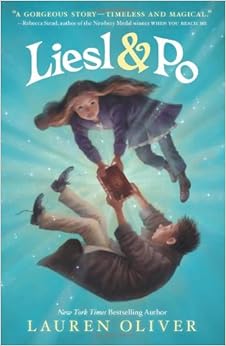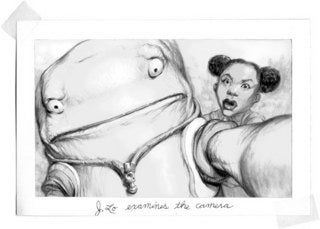I will say that I have always enjoyed reading; I remember making day to day visits to the library, picking up what was usually a fantasy book from that storehouse of ideas and thoughts and imagination. After that I would become enveloped within the story, the characters, their struggles, their fears, and how they eventually overcame the challenges they faced. I would vividly attempt to imagine exactly what it was like for those characters-I would become immersed in learning about the details.
 |
| What do you mean, "this picture doesn't have any symbolic meaning" Yes it does. Trust me. |
You see, when I read, I don't typically try-or necessarily like-to pick apart every little detail for a "deeper meaning." Yes, I tend to realize symbolism that the author placed within the text to attain a deeper meaning. And yes, I am aware that analyzing a book or story is an important skill.
But I look for something else when reading a story. That really defines whether or not I truly like what I read.
I read to learn about the story; the lore. Not to analyze a book to death.
And I always have. Those trips to the library were just to find out what happened next in the series. Whether it was about modern demigods facing the harrowing monsters of Ancient Greek mythology, or about clay dragons and their connection to the earth, I read for the thrill of the ride.
You can call me shallow reader for feeling that way, but I will continue to be dragged into writing for the creativeness of the author and the fantastical worlds that are produced by their imagination.
 |
| Trust me all of these pictures have a deeper meaning. I'm trying to be funny please laugh. |
Blogging certainly wasn't an arduous task for me. It may have been tedious as points but I never really had any difficulty writing down my opinions on the book. I can't exactly say I am good at it, though. But on the upside, blogging is incentive to actually read. I hate to admit it but I've been finding it harder and harder to pick up books-but once I get started on one I can hardly stop reading, but the task of actually finding a book to read has just become a bit unappealing, and I am actually unsure as to why.
Maybe my passionate reading as a child eventually exhausted my drive to read. Or maybe the introduction of things such as video games distracted me from getting a book and looking at it.
I don't know.
To be honest though, writing this blog was somewhat uncomfortable as well. I typically prefer to keep my opinions to myself, unless it is something that I am passionate about. But, then again, I guess that helps me overcome something I struggle with a bit.
 |
| Yes. |
This year has been quite a challenge, not exactly in the amount of schoolwork, per se, but in the social atmosphere.
I'm not even necessarily sure I can call it a challenge, there are so many more people that face troubles greater than the ones that I may find difficult. There are so many people my age that are doing great things. Who are taking difficult courses, creating beautiful things, have many friends, and are going through tough times. I sort of feel like I've just been left in the dust, I guess. I feel like a burden that says stupid things all of the time.
And I worry about that.
I don't know, people have just changed, and I probably have along with them. For better or for worse. But I'm not sure if I grew as a person at all this year.
Got a bit too pessimistic oops.






